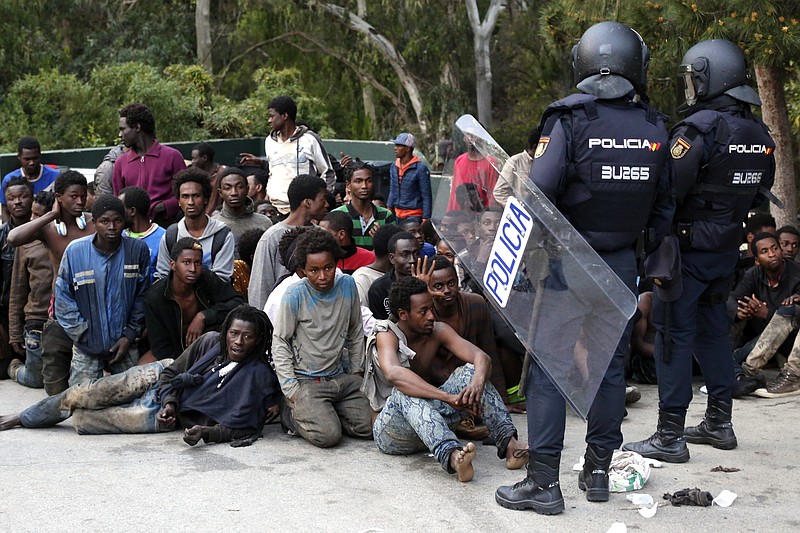MADRID (AP) - The Red Cross says 350 migrants crossed the fence into a Spanish territory in North Africa early Monday, three days after 500 more managed to break the gates.
A spokeswoman for the Red Cross in Ceuta, the Spanish enclave on the Moroccan coast, said that 11 of the Sub-Saharan African migrants were sent to a hospital to be treated for cuts, bone fractures and other injuries. She declined to be identified by name, following internal policy.
Fleeing poverty, violence or both, hundreds of sub-Saharan African migrants attempt to cross from Morocco into Ceuta and Melilla, the other Spanish enclave in North Africa. Some also choose to cross the Strait of Gibraltar by boat.
The office of the central government's envoy in Ceuta said the migrants crossed at around 3 a.m. local time (0200GMT) crossing a gate that was damaged last Friday, when more than 500 smashed their way through with cubs and sticks.
Officials said two agents of the Civil Guard were hospitalized with bone fractures.
More than 1,300 people are now crammed into the CETI center for temporary accommodation of immigrants, designed to house 512 people.
Migrants are usually sent from Ceuta to different centers run by NGOs across Spain, where they receive accommodation and food. Most find informal jobs or continue north to other European nations.
